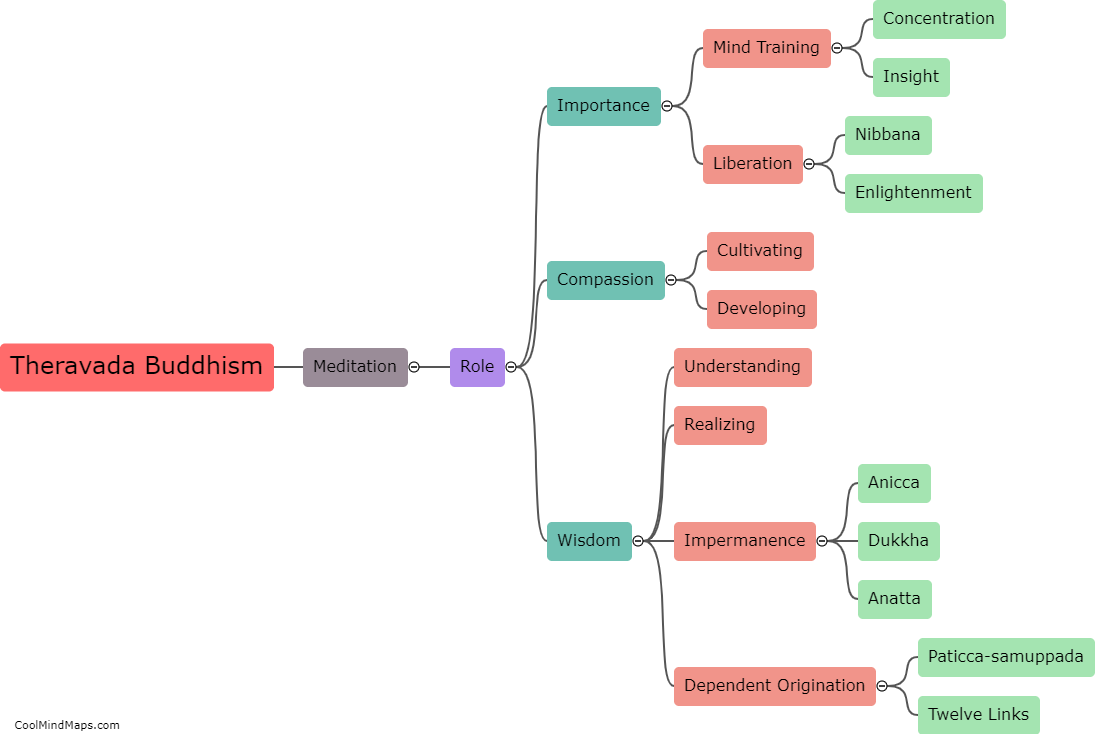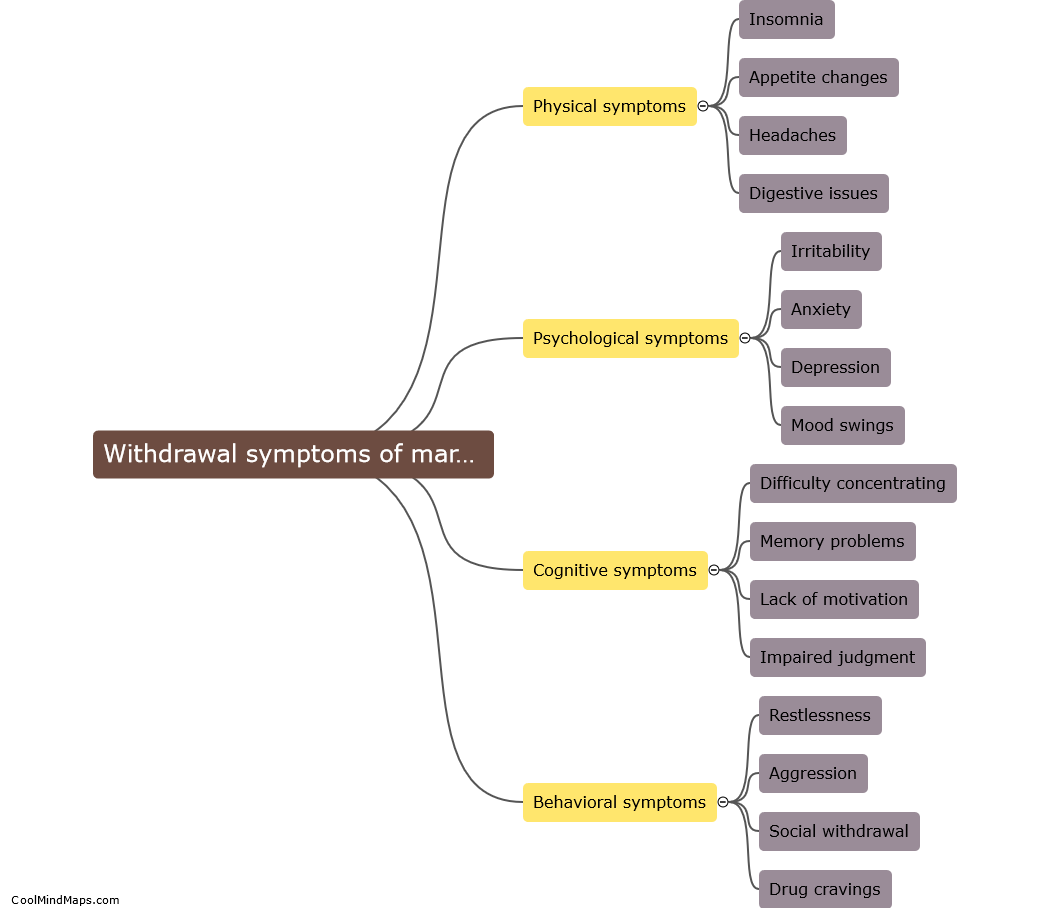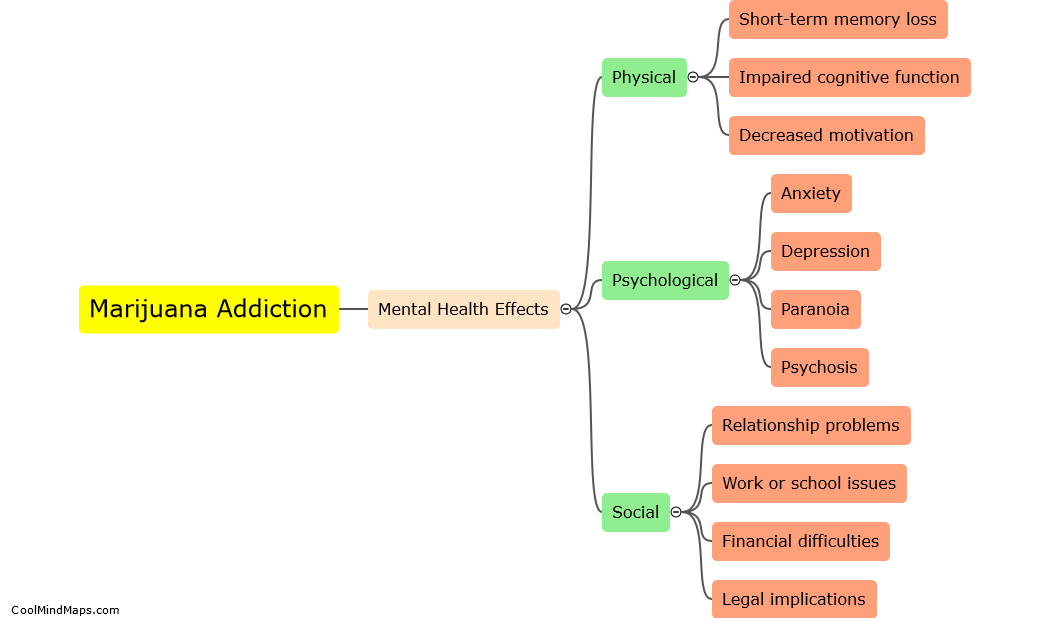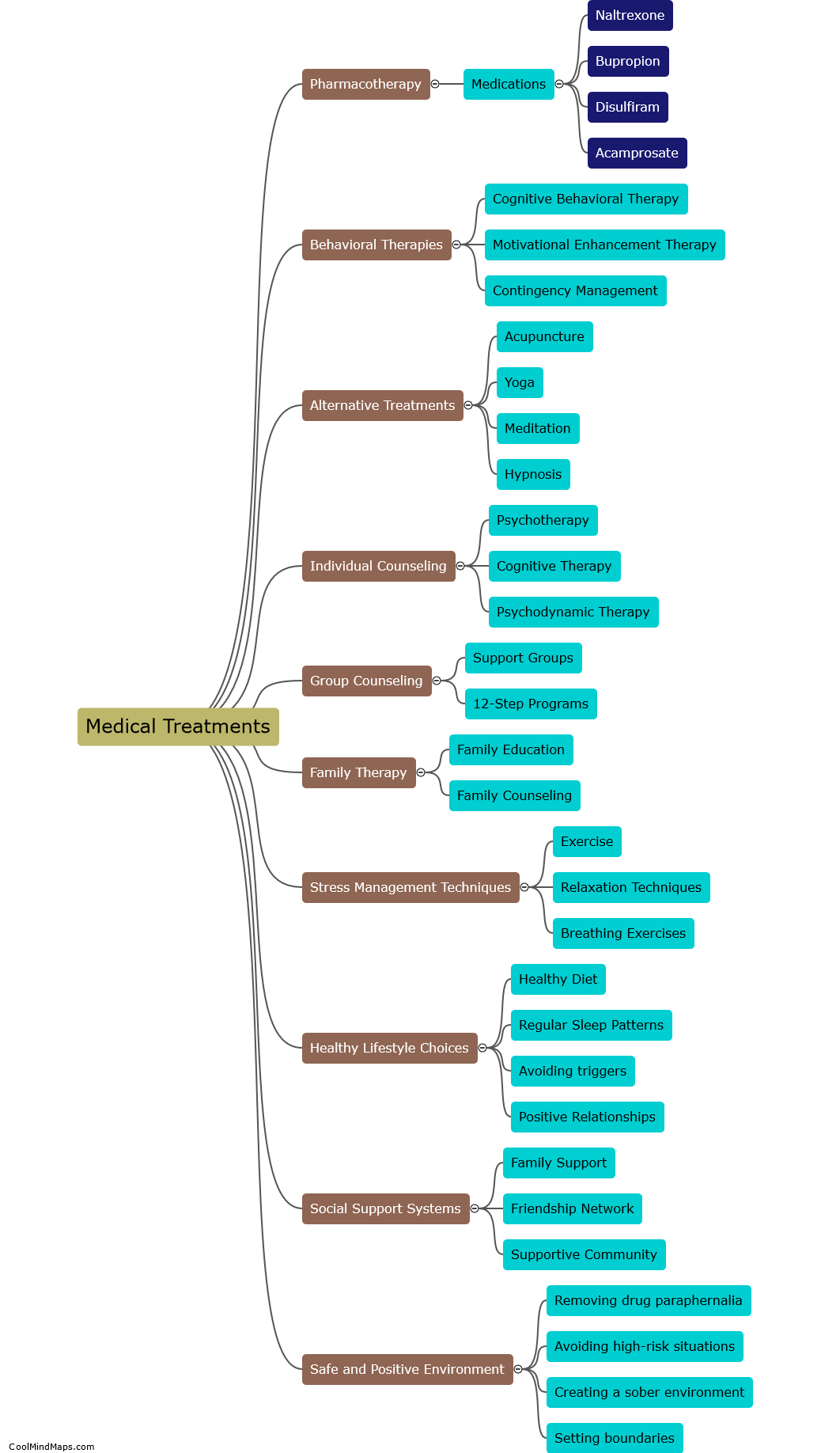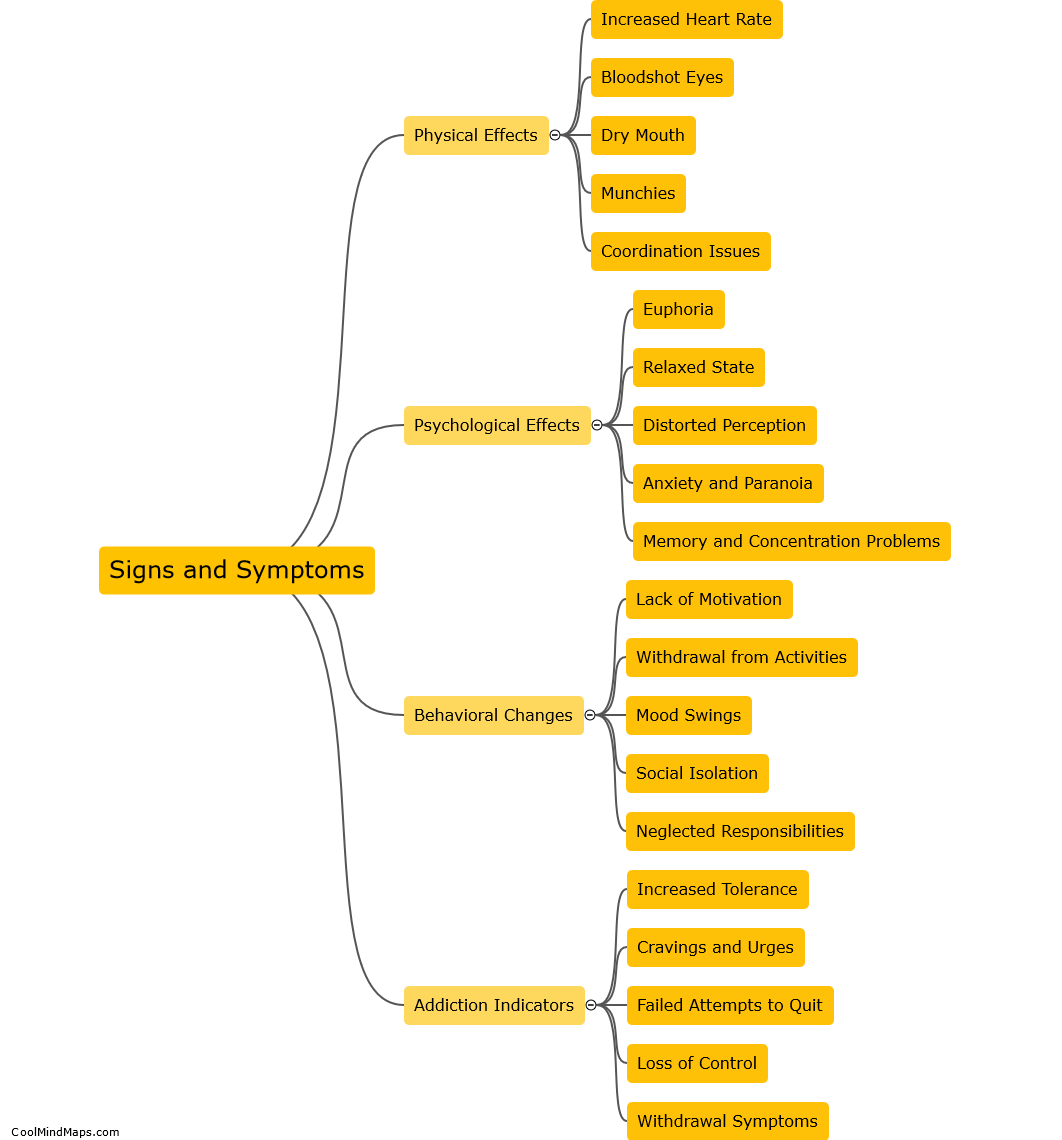What are the long-term effects of marijuana addiction?
Marijuana addiction can have significant long-term effects on both the physical and mental well-being of individuals. Prolonged use of marijuana can lead to respiratory issues such as chronic bronchitis and lung infections. It can also impair memory, attention, and cognitive functions, making it challenging to focus or retain information. Furthermore, marijuana addiction can impact mental health, increasing the risk of developing anxiety disorders, depression, and schizophrenia. Continuous marijuana use may also lead to a decline in motivation and productivity, affecting personal and professional goals. Additionally, individuals may experience withdrawal symptoms such as irritability, mood swings, and insomnia when trying to quit, making it difficult to break free from the addiction. Seeking timely support and treatment is crucial to mitigate and address these long-term effects.

This mind map was published on 1 January 2024 and has been viewed 93 times.


